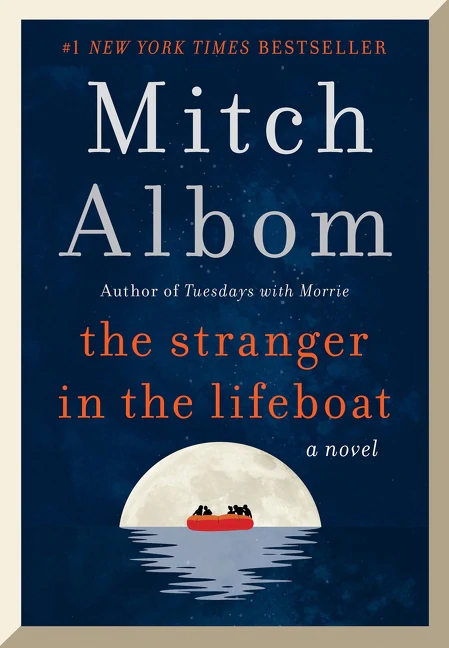
What would you do if, in the darkest moment of your life, God appeared before you? That is the haunting question at the heart of Mitch Albom’s The Stranger in the Lifeboat, a story that blurs the lines between faith and survival, reality and miracle. Known for his emotionally charged explorations of spirituality in modern life, Albom once again takes readers into a deeply introspective journey, one that begins with a tragedy at sea and ends with questions about the divine nature of hope itself.
After a luxury yacht called The Galaxy explodes, ten people are left adrift on a lifeboat with little food, less water, and fading faith. Three days later, they spot a man floating in the waves. They pull him aboard. When asked who he is, he quietly replies, “I am the Lord.” From that moment, the survivors are forced to confront their deepest fears, doubts, and beliefs as they wait for rescue. Is this man truly God answering their prayers, or is he a desperate illusion of their fractured minds?
Albom weaves the story through three alternating timelines: Sea (Benji’s journal entries from the lifeboat), Land (an inspector named LeFleur’s investigation after the raft is found a year later), and News (the media coverage surrounding the yacht and its wealthy passengers). This layered structure gives the novel a cinematic rhythm, making readers question what is real and what might be metaphorical.
At the center of it all is Benji Keaney, a humble crew member haunted by guilt and grief. Through his diary, we see his longing for his wife Annabelle and his struggle to find meaning amid despair. His humanity his compassion for others, his remorse, his inability to fully believe grounds the story in raw emotion. Albom paints Benji as both sinner and seeker, a reflection of all of us caught between belief and doubt.
Some readers, like Susan, see the novel as a bold spiritual parable that captures the timeless struggle between faith and reason. Others, like Rosh, found the story confusing and too abstract, with its theological undertones overshadowing its emotional depth. Yet for many, including Summer, the book offers something rare: a quiet sense of comfort and reflection. It invites readers to stop searching for proof of divinity and instead look inward to see that perhaps God is not found in miracles, but in compassion, resilience, and love.
Albom’s writing remains simple, heartfelt, and profoundly human. While the story might frustrate those seeking logical explanations, it resonates deeply with anyone who has ever questioned their faith in moments of suffering. The novel’s beauty lies not in its answers, but in its invitation to ask the right questions: Are we ever truly alone? Do our prayers ever go unheard? Or is salvation something we create through each other?
The Stranger in the Lifeboat is not just a tale of survival it’s a meditation on belief itself. Whether you are deeply spiritual or simply searching for meaning, this book will stir something inside you. It may not give you certainty, but it will leave you with the quiet conviction that hope, like faith, is never wasted.
👉 Buy The Stranger in the Lifeboat on Amazon: https://amzn.to/4mTtCMO


